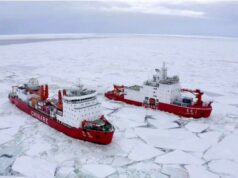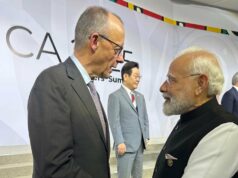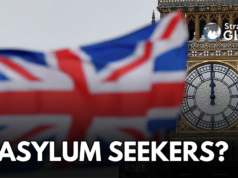NEW DELHI: Former top UN and Norwegian diplomat and minister Erik Solheim and StratNews Global Associate Editor Amitabh P. Revi discuss the China origin virus, COVID-19, and the lack of global leadership in one of humanity’s most testing times. Speaking from Oslo, Norway, the ex-head of the UN Environment Programme highlights how most of the world initially saw it as Beijing’s problem. In contrast, he holds up the examples of Taiwan, South Korea and Singapore, who have been preparing for a pandemic for 17 years after SARS.
Solheim argues that the people who blame China for lying and suppressing facts are the same people also pointing fingers at Beijing for being harshly authoritarian while dealing with the virus. The recipe for success, Solheim feels, is strong, immediate government leadership that ‘tests, tests, tests then traces and isolates.’ The former diplomat and minister points out that for the first time the U.S. has abdicated a global leadership role—the pieces of which should be picked up by China and India. He notes Prime Minister Narendra Modi’s SAARC and G-20 initiatives as necessary to be replicated around the globe. Erik Solheim also stresses the necessity to fund developing, underdeveloped and poor countries to cushion the biggest economic setback of the modern era. On his country Norway, he says he’s optimistic about the situation but recognises it’s too early to say. On Sweden’s model of isolating only the most vulnerable people while keeping parts of the economy running, Solheim says it’s a risky experiment since the most vulnerable are also the most dependent.
Erik Solheim served as Executive Director of the UN Environment Programme from May 2016 to November 2018. Before that, he was the chair of the Development Assistance Committee of the Organization for Economic Co-operation and Development(OECD). In this capacity, he focused on the need to channel more aid to least-developed countries. Solheim has also been Norway’s Minister of the Environment and International Development when the country’s aid reached 1 per cent, the highest in the world. He was the main facilitator of the peace process in Sri Lanka from 1998 to 2005 and has also contributed to peace processes in Sudan, Nepal, Myanmar and Burundi.
The 'Eye' of the story not the 'I' of the story. That's Amitabh Pashupati Revi's credo from the beginning of his professional journey in 1995. From conflicts in the war zones of Afghanistan, Syria, and Iraq to nuances of international politics in the Maldives,Thailand, and South Sudan, Amitabh has reported from all the world's continents, except for Antarctica(so far). Though, he has documented the world's third pole, the Siachen Glacier!
Amitabh reports and produces documentaries on the two-front China-Pakistan threat to India. His ground reports from Arunachal Pradesh and Ladakh have received viewership in the hundreds of thousands. Amitabh has interviewed world leaders, top global analysts, and experts in India, Russia, the United States, and Australia as well. Along the way, he’s picked up the Russian language, the Ramnath Goenka Award for his reporting on the 'Islamic State' terrorist group in Iraq, the Khaled Alkhateb Award for his reporting from Palmyra, Syria, and the UN Dag Hammarskjöld Distinguished Journalist Fellowship. Last but not least, as a founder member of StratNews Global, Amitabh helps lead the reporting, editorial, production, and administration teams at StratNews Global, BharatShakti, and InterStellar on their journey ahead.




